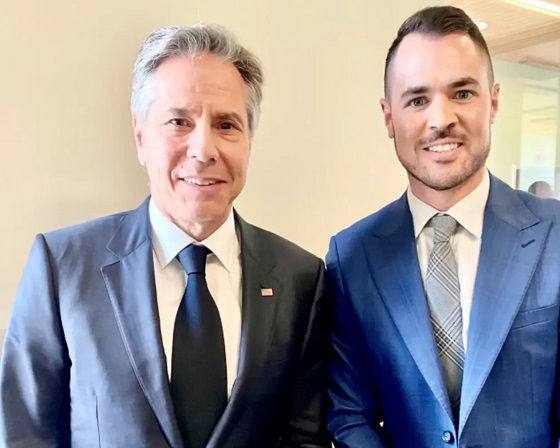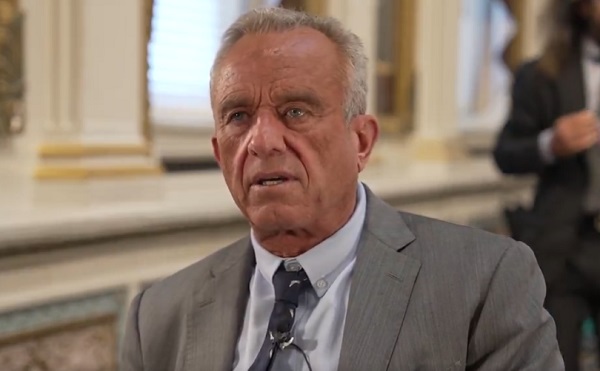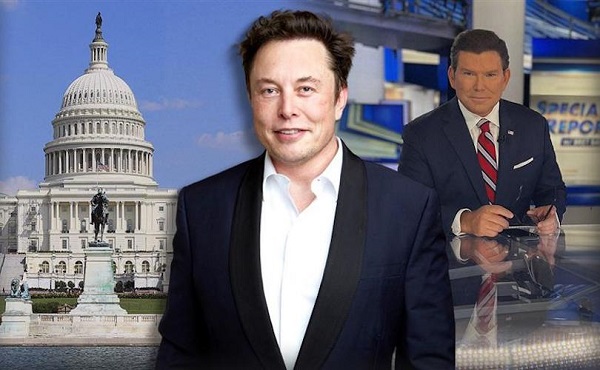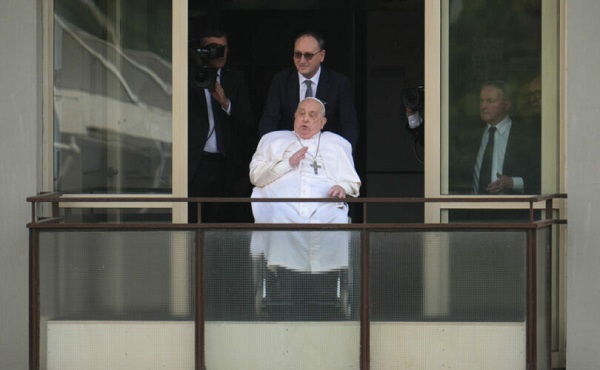Business
U.S. ‘Losing Faith’ in Canada’s Ability to Combat Industrial-Scale Fentanyl

BC Mayor Warns of Asian Organized Crime’s Surprising Access to Canada’s Political Class, Echoing US Agency Concerns
In a high-level meeting in 2023—one participant representing the head of state of the world’s most powerful nation, the other a popular small-town mayor in British Columbia—candid warnings emerged about Canada’s capacity to confront the industrial-scale production of fentanyl. Mayor Brad West, a longstanding critic of transnational drug networks in his province, recalls Secretary of State Antony Blinken stressing that Washington believes Beijing is effectively weaponizing fentanyl against North Americans—and that Canada stands out as a worrisome weak link in the global supply chain.
On Tuesday, Prime Minister Justin Trudeau’s government moved to address growing U.S. alarm by appointing former RCMP deputy commissioner Kevin Brosseau as Canada’s new “fentanyl czar.” Announced as part of an agreement to forestall potential American tariffs in a tense trade dispute, the position mandates “accelerating Canada’s ongoing work to detect, disrupt, and dismantle the fentanyl trade,” according to the Prime Minister’s Office. Brosseau, who most recently served as deputy national security and intelligence adviser to Trudeau, will work closely with U.S. agencies to tackle a crisis that has claimed tens of thousands of lives across North America. Still, questions remain about whether he has the standing in Washington—and the authority in Ottawa—to enact meaningful reforms.
West, reflecting on his encounter with Blinken, doubts that incremental measures will suffice. He argues that only bold legislative change, coupled with a willingness to challenge entrenched legal barriers, can dispel the U.S. government’s unease over Canada’s approach. “Secretary Blinken specifically noted the lack of a RICO-style law in Canada,” West said. “He talked about how, in the United States, that law had been used to take down large portions of the mafia. Then he looked at us—one of America’s closest allies—and saw a very concerning weak link.”
According to West, Blinken pointed to China’s role in funneling precursor chemicals into fentanyl labs. He warned that China’s government, if inclined, could stem the flow but has little interest in doing so. “He was incredibly candid and very serious about the threat fentanyl poses to North America,” West recalled. “He confirmed the connection between the Chinese Communist Party, the triads, and the Mexican cartels, telling me these groups are working together—and it’s Canada where they’re finding a safe operating base.”
West says American frustration revolves around high-profile law enforcement stumbles in Canada, notably the E-Pirate investigation into Silver International, an alleged underground bank in Richmond, B.C., believed to have laundered more than a billion dollars a year for global syndicates. Touted as a signal that Canadian authorities could clamp down on transnational money laundering, the case nevertheless collapsed with no convictions. “He expressed genuine dismay that we haven’t secured meaningful convictions,” West said, paraphrasing Blinken. “When our most prominent laundering case ends with zero prison time, you can see why the Americans are alarmed.”
Blinken also conveyed to West that U.S. agencies have grown hesitant to share certain intelligence with their Canadian counterparts.
“He told me that U.S. intelligence and law enforcement are withholding some evidence because they don’t believe we’ll act on it,” West explained. “They’ve lost confidence.”
West added that in ongoing communications, he has learned American officials are shocked that major figures in Asian organized crime “seem to have so much access to our political class. They’re basically saying, ‘What’s going on in Canada?’”
A major concern, according to West, is how known criminals manage to appear at political events or fundraisers with little oversight.
“It’s not necessarily that politicians are complicit, but our political structures have weak guardrails,” West said. “The Americans see pictures of transnational criminals mingling at official gatherings and find it baffling.”
West insists that Canada must enact a legal framework akin to the U.S. Racketeer Influenced and Corrupt Organizations (RICO) Act to truly “detect, disrupt, and dismantle” the fentanyl trade. “We don’t have anything like it, and until we do, I worry the new czar’s hands could be tied by the legal status quo,” West said. “Ottawa might resist, but we need it. We should have enacted it yesterday.”
He also decries what he calls “egregious rulings” that free major traffickers or launderers on technicalities. West cites a prominent British Columbia case in which a suspect found with more than 27,000 fentanyl pills was released because a police dog had not fully performed its required sitting motion before searching a vehicle. “When a decision like that happens, we’re letting criminals exploit minutiae while countless people die,” he said. “We need a government that has the courage to challenge those judicial outcomes.”
In pursuit of that goal, West is willing to suggest the targeted use of the notwithstanding clause, a rare constitutional tool allowing governments to override parts of the Charter of Rights and Freedoms for up to five years. Typically employed in language or education disputes, it has scarcely been used in criminal proceedings. “When the Charter is being weaponized by sophisticated organizations, the government should consider all tools,” he insisted. “The right of Canadians not to be killed by a drug of this scale ought to supersede a procedural glitch.”
The severity of the fentanyl crisis in British Columbia, which has seen the majority of Canada’s overdose deaths, offers a striking backdrop for West’s urgings. He emphasizes that the torrent of precursor chemicals from China has supercharged local labs, embedding crime syndicates in global narcotics pipelines. Profits from these vast operations, in his words, flow through real estate, casinos, and underground banks with little interference.
Whether Ottawa has the political will to implement measures as sweeping as a RICO-style statute or invoke the notwithstanding clause remains uncertain. Both actions would require confronting powerful interests and explaining why existing laws have failed to secure convictions against top offenders. But West argues that mounting American impatience has changed the equation. “This is no longer just a Canadian domestic issue,” he said. “Secretary Blinken made it clear that the Biden administration sees fentanyl as an existential threat. They’re building a global coalition and need Canada fully on board. If we don’t show real progress, the U.S. will protect itself by any means—tariffs or otherwise.”
“People have been calling for something like RICO in Canada for years,” West added. “Silver International was the textbook illustration of why we need it. We had it all—massive money laundering, triads with direct links to Mexican cartels tied to fentanyl labs—and it collapsed because our system couldn’t handle a case of that complexity. That can’t keep happening, or else we’ll remain the hub of a deadly trade.”
West also revealed he would have accepted the fentanyl czar position himself if asked. “I love being mayor, but this is one of the biggest challenges facing our country,” he said. “I’d pour my heart into it. It demands relentless follow-through: legislation, expanded police powers, educating the public, and yes, taking on the courts if necessary.”
Whether Brosseau wields enough clout remains to be seen. West hopes the appointment signals a turning point from what he calls “a fragmented, complacent approach” to one that confronts the crisis on all fronts. “I’ve seen too many half-measures,” he said. “But maybe this time it’ll be different. The Americans have made their position crystal clear, and we need to demonstrate that we can protect ourselves. Otherwise, we fail both our citizens and our closest ally.”
West still recalls Blinken’s direct plea: “He basically said, ‘We need a partner we can trust, one that can disrupt these networks and secure convictions,’” West noted. “If Canada doesn’t step up, I believe the Americans will respond in ways that damage our relationship—and meanwhile, we’ll continue losing people to a drug that’s tearing families apart. We just can’t let that happen.”
The Bureau is a reader-supported publication.
To receive new posts and support my work, consider becoming a free or paid subscriber.
Business
Cuba has lost 24% of it’s population to emigration in the last 4 years

 MxM News
MxM News
Quick Hit:
A new study finds Cuba has lost nearly a quarter of its population since 2020, driven by economic collapse and a mass emigration wave unseen outside of war zones. The country’s population now stands at just over 8 million, down from nearly 10 million.
Key Details:
- Independent study estimates Cuba’s population at 8.02 million—down 24% in four years.
- Over 545,000 Cubans left the island in 2024 alone—double the official government figure.
- Demographer warns the crisis mirrors depopulation seen only in wartime, calling it a “systemic collapse.”
Diving Deeper:
Cuba is undergoing a staggering demographic collapse, losing nearly one in four residents over the past four years, according to a new study by economist and demographer Juan Carlos Albizu-Campos. The report estimates that by the end of 2024, Cuba’s population will stand at just over 8 million people—down from nearly 10 million—a 24% drop that Albizu-Campos says is comparable only to what is seen in war-torn nations.
The study, accessed by the Spanish news agency EFE, points to mass emigration as the primary driver. In 2024 alone, 545,011 Cubans are believed to have left the island. That number is more than double what the regime officially acknowledges, as Cuba’s government only counts those heading to the United States, ignoring large flows to destinations like Mexico, Spain, Serbia, and Uruguay.
Albizu-Campos describes the trend as “demographic emptying,” driven by what he calls a “quasi-permanent polycrisis” in Cuba—an interwoven web of political repression, economic freefall, and social decay. For years, Cubans have faced food and medicine shortages, blackout-plagued days, fuel scarcity, soaring inflation, and a broken currency system. The result has been not just migration, but a desperate stampede for the exits.
Yet, the regime continues to minimize the damage. Official figures from the National Office of Statistics and Information (ONEI) put Cuba’s population at just over 10 million in 2023. However, even those numbers acknowledge a shrinking population and the lowest birth rate in decades—confirming the crisis, if not its full scale.
Cuba hasn’t held a census since 2012. The last scheduled one in 2022 has been repeatedly delayed, allegedly due to lack of resources. Experts doubt that any new attempt will be transparent or complete.
Albizu-Campos warns that the government’s refusal to confront the reality of the collapse is obstructing any chance at solutions. More than just a demographic issue, the study describes Cuba’s situation as a “systemic crisis.”
“Havana (Cuba, February 2023)” by Bruno Rijsman licensed under CC BY-SA 2.0 DEED.
Business
Tariff-driven increase of U.S. manufacturing investment would face dearth of workers

From the Fraser Institute
Since 2015, the number of American manufacturing jobs has actually risen modestly. However, as a share of total U.S. employment, manufacturing has dropped from 30 per cent in the 1970s to around 8 per cent in 2024.
Donald Trump has long been convinced that the United States must revitalize its manufacturing sector, having—unwisely, in his view—allowed other countries to sell all manner of foreign-produced manufactured goods in the giant American market. As president, he’s moved quickly to shift the U.S. away from its previous embrace of liberal trade and open markets as cornerstones of its approach to international economic policy —wielding tariffs as his key policy instrument. Since taking office barely two months ago, President Trump has implemented a series of tariff hikes aimed at China and foreign producers of steel and aluminum—important categories of traded manufactured goods—and threatened to impose steep tariffs on most U.S. imports from Canada, Mexico and the European Union. In addition, he’s pledged to levy separate tariffs on imports of automobiles, semi-conductors, lumber, and pharmaceuticals, among other manufactured goods.
In the third week of March, the White House issued a flurry of news releases touting the administration’s commitment to “position the U.S. as a global superpower in manufacturing” and listing substantial new investments planned by multinational enterprises involved in manufacturing. Some of these appear to contemplate relocating manufacturing production in other jurisdictions to the U.S., while others promise new “greenfield” investments in a variety of manufacturing industries.
President Trump’s intense focus on manufacturing is shared by a large slice of America’s political class, spanning both of the main political parties. Yet American manufacturing has hardly withered away in the last few decades. The value of U.S. manufacturing “output” has continued to climb, reaching almost $3 trillion last year (equal to 10 per cent of total GDP). The U.S. still accounts for 15 per cent of global manufacturing production, measured in value-added terms. In fact, among the 10 largest manufacturing countries, it ranks second in manufacturing value-added on a per-capita basis. True, China has become the world’s biggest manufacturing country, representing about 30 per cent of global output. And the heavy reliance of Western economies on China in some segments of manufacturing does give rise to legitimate national security concerns. But the bulk of international trade in manufactured products does not involve goods or technologies that are particularly critical to national security, even if President Trump claims otherwise. Moreover, in the case of the U.S., a majority of two-way trade in manufacturing still takes place with other advanced Western economies (and Mexico).
In the U.S. political arena, much of the debate over manufacturing centres on jobs. And there’s no doubt that employment in the sector has fallen markedly over time, particularly from the early 1990s to the mid-2010s (see table below). Since 2015, the number of American manufacturing jobs has actually risen modestly. However, as a share of total U.S. employment, manufacturing has dropped from 30 per cent in the 1970s to around 8 per cent in 2024.
| U.S. Manufacturing Employment, Select Years (000)* | |
|---|---|
| 1990 | 17,395 |
| 2005 | 14,189 |
| 2010 | 14,444 |
| 2015 | 12,333 |
| 2022 | 12,889 |
| 2024 | 12,760 |
| *December for each year shown. Source: U.S. Bureau of Labor Statistics | |
Economists who have studied the trend conclude that the main factors behind the decline of manufacturing employment include continuous automation, significant gains in productivity across much of the sector, and shifts in aggregate demand and consumption away from goods and toward services. Trade policy has also played a part, notably China’s entry into the World Trade Organization (WTO) in 2001 and the subsequent dramatic expansion of its role in global manufacturing supply chains.
Contrary to what President Trump suggests, manufacturing’s shrinking place in the overall economy is not a uniquely American phenomenon. As Harvard economist Robert Lawrence recently observed “the employment share of manufacturing is declining in mature economies regardless of their overall industrial policy approaches. The trend is apparent both in economies that have adopted free-market policies… and in those with interventionist policies… All of the evidence points to deep and powerful forces that drive the long-term decline in manufacturing’s share of jobs and GDP as countries become richer.”
This brings us back to the president’s seeming determination to rapidly ramp up manufacturing investment and production as a core element of his “America First” program. An important issue overlooked by the administration is where to find the workers to staff a resurgent U.S. manufacturing sector. For while manufacturing has become a notably “capital-intensive” part of the U.S. economy, workers are still needed. And today, it’s hard to see where they will be found. This is especially true given the Trump administration’s well-advertised skepticism about the benefits of immigration.
According to the U.S. Bureau of Labor Statistics, the current unemployment rate across America’s manufacturing industries collectively stands at a record low 2.9 per cent, well below the economy-wide rate of 4.5 per cent. In a recent survey by the National Association of Manufacturers, almost 70 per cent of American manufacturers cited the inability to attract and retain qualified employees as the number one barrier to business growth. A cursory look at the leading industry trade journals confirms that skill and talent shortages remain persistent in many parts of U.S. manufacturing—and that shortages are destined to get worse amid the expected significant jump in manufacturing investment being sought by the Trump administration.
As often seems to be the case with Trump’s stated policy objectives, the math surrounding his manufacturing agenda doesn’t add up. Manufacturing in America is in far better shape than the president acknowledges. And a tariff-driven avalanche of manufacturing investment—should one occur—will soon find the sector reeling from an unprecedented human resource crisis.
Jock Finlayson
Senior Fellow, Fraser Institut
-

 2025 Federal Election2 days ago
2025 Federal Election2 days agoDonald Trump suggests Mark Carney will win Canadian election, touts ‘productive call’ with leader
-

 Health2 days ago
Health2 days agoRFK Jr. says ‘everything is going to change’ with CDC vaccine policy in Michael Knowles interview
-

 2025 Federal Election2 days ago
2025 Federal Election2 days agoNext federal government should recognize Alberta’s important role in the federation
-

 Business2 days ago
Business2 days agoLabor Department cancels “America Last” spending spree spanning five continents
-

 Business2 days ago
Business2 days agoElon Musk, DOGE officials reveal ‘astonishing’ government waste, fraud in viral interview
-

 2025 Federal Election8 hours ago
2025 Federal Election8 hours ago2025 Federal Election Interference from China! Carney Pressed to Remove Liberal MP Over CCP Bounty Remark
-

 Addictions1 day ago
Addictions1 day agoThere’s No Such Thing as a “Safer Supply” of Drugs
-

 Uncategorized7 hours ago
Uncategorized7 hours agoPoilievre on 2025 Election Interference – Carney sill hasn’t fired Liberal MP in Chinese election interference scandal












